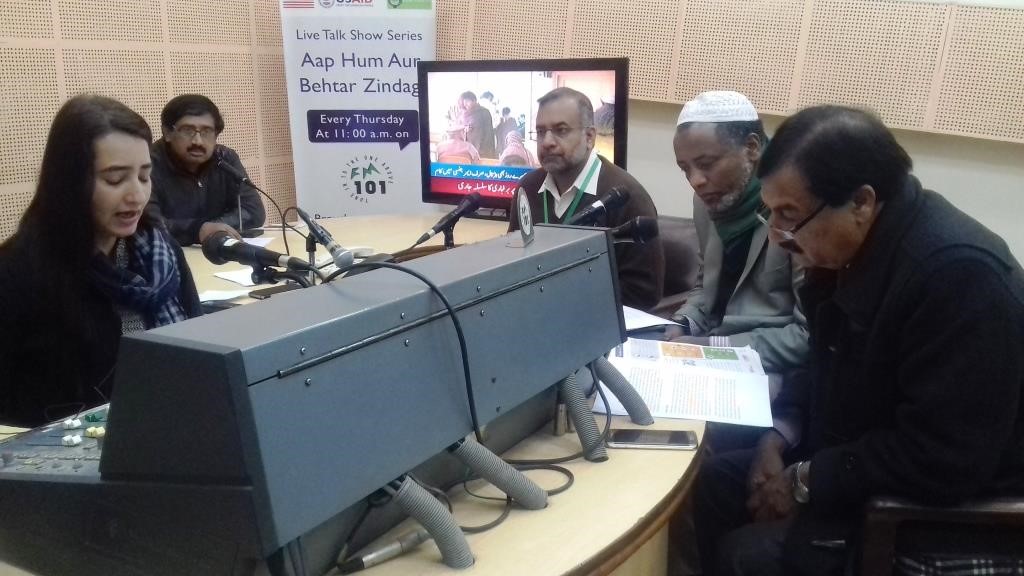
ISLAMABAD (CIMMYT) — Public and private sector maize stakeholders came together to discuss the International Maize and Wheat Improvement Center’s (CIMMYT) maize interventions and innovations in Pakistan during a recent radio talk show hosted by the Pakistan Broadcasting Corporation.
The radio talk show was organized by the United States Agency for International Development (USAID) and focused on maize development under the CIMMYT-led Agricultural Innovation Program (AIP), supported by USAID in collaboration with national partners. The Pakistan Broadcasting Corporation conducted the show in Urdu and English and aired it throughout the country.
One of the show panelists, Zahid Shafique, program leader from Pakistan’s National Agricultural Research Center, gave an overview of AIP’s interventions and expressed the hope that the program will help Pakistan develop affordable hybrid maize seed, which is currently sold for $6-8 per kilogram, one of the highest prices in South Asia.
Faisal Hayat, deputy manager of the seed company Jullundur Private Limited, noted that CIMMYT’s joint evaluation of hybrids and open-pollinated varieties (OPVs) with AIP maize partners has helped the private sector develop improved hybrids and OPVs that are better adapted to Pakistan’s diverse climates. Capacity building efforts to ensure quality seed production is key to ensuring the sustainability of AIP after its completion said Nazim Ali, an agricultural economist with USAID.
CIMMYT was represented by maize improvement and seed systems specialist AbduRahman Beshir, who briefed the panelists about the introduction and nationwide testing of diverse germplasm and the allocation of well adapted maize hybrids and OPVs to partners.
 Nutrition, health and food security
Nutrition, health and food security 
